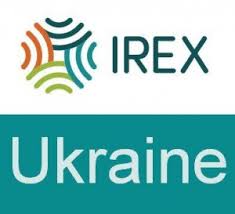 Two project applications from the Horlivka Institute of Foreign Languages under the grant proposal of the second stage of the project from the Council for International Research and Exchanges IREX "Study and Distinguish: Info-Media Literacy" were supported.
Two project applications from the Horlivka Institute of Foreign Languages under the grant proposal of the second stage of the project from the Council for International Research and Exchanges IREX "Study and Distinguish: Info-Media Literacy" were supported.
The Department of Domestic and Foreign History has prepared an application entitled "Stop the instrumentalization of history", the task of the project will be to analyze the programs and textbooks of the course "History of the Fatherland“, Which are run by so-called schools. "DPR", in order to identify distorted facts of history and to form a critical attitude to attempts to use history as a tool of political play.
The Department of Ukrainian Philology in cooperation with colleagues from Sumy Pedagogical University proposed a project called "Teacher's Media Campus", which aims to spread the scientific approach to media literacy through cooperation in philology between higher education institutions and participation in joint research and educational activities.
We will remind that from 2019-2020 academic year GIIM is closely cooperating with IREX in Ukraine on the implementation of a large-scale project "Study and distinguish: info-media literacy", which will last in 2020-2021 academic year. The project is being implemented in general secondary and higher education institutions with the support of the US Embassy and the British Embassy in Ukraine in partnership with the Ministry of Education of Ukraine and the Academy of Ukrainian Press. The first part of this project was a five-week English course "Very verified: a Course on Media Literacy" in September-October 2019.
Then a group of teachers from the departments of Ukrainian philology, domestic and foreign history and English philology and translation were trained at IREX schools on how to integrate the component of media literacy and critical thinking into disciplines for future teachers, and actively implement the acquired knowledge and skills.
The current stage of the project involves the practical integration of media literacy modules into the educational process.

